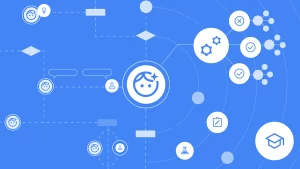ENSCHEDE — As Artificial Intelligence (AI) continues to reshape educational and research landscapes, the University of Twente (UT) underscores the need to harness its potential while remaining vigilant against inherent risks. Tools like ChatGPT have swiftly integrated into academia, prompting UT to advocate for informed AI utilization, recognizing both its benefits and ethical considerations, according to a press release published on EuropaWire .
Opportunities and Risks: Professor Kim Schildkamp and educational consultant Robin van Emmerloot from UT emphasize AI’s dual nature—providing opportunities while necessitating caution. They advocate for proactive training of educators to navigate AI’s complexities, ensuring its integration into education and research enhances rather than undermines learning outcomes. Schildkamp underscores the importance of maintaining a critical mindset, as AI’s imperfections pose risks of educational inequality among students.
AI Skills and Education: The exponential rise of AI tools like ChatGPT prompts reflections on AI literacy and its implications for education. Schildkamp and van Emmerloot stress the importance of fostering AI skills among students and educators alike, emphasizing AI’s role as a supplementary learning aid rather than a replacement for traditional teaching methods. UT’s commitment to AI literacy is underscored through initiatives aimed at equipping teachers with the necessary tools to harness AI effectively.
Tool in Education and Research: While acknowledging AI’s potential as a valuable educational tool, UT advocates for transparency and critical scrutiny of AI-generated content. Schildkamp highlights ChatGPT’s efficacy in achieving specific learning objectives, emphasizing the need for transparency in its usage. Van Emmerloot echoes this sentiment, emphasizing the importance of human oversight in verifying AI-generated information, particularly in research settings.
The Human Factor: UT’s Executive Board underscores the irreplaceable role of human involvement in AI integration, emphasizing the need for responsible and ethical AI usage. Schildkamp stresses the importance of fostering a sense of community within educational settings, emphasizing the complementary nature of AI and human interaction in facilitating effective learning experiences.
The Ethical Aspect: Beyond its transformative potential, AI’s ethical implications remain a focal point for UT. Schildkamp and van Emmerloot highlight concerns regarding AI tool accessibility and inherent biases, advocating for measures to mitigate potential inequalities. UT remains committed to addressing these challenges, advocating for equitable AI usage and ethical AI development.
As UT navigates the dynamic landscape of AI integration, its commitment to balancing innovation with ethical considerations remains unwavering.



















